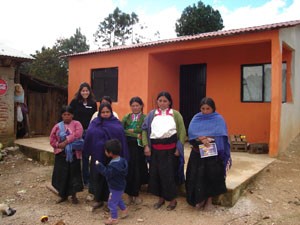
Alternativa Solidaria A.C. (AlSol), a local microfinance institution serving women in the Chiapas region, has grown and improved its operations spectacularly. With USAID support, AlSol has become financially sustainable and now serves over 16,000 women.
But with this success, its director, Katia Corroy, felt a more urgent need to establish a marketing position that would keep a continuous eye on the needs of current and potential clients; research market expansion and product development; and manage client satisfaction.
USAID supported this vision by matching up AlSol’s needs with the supply of highly motivated graduate school students in the United States eager to apply their skills, such as Ana Luisa Pinto. Ana Luisa was sent to AlSol as an advisor to create a marketing department for the institution and implement permanent market research and client satisfaction mechanisms.
She strengthened the institutional image of AlSol through marketing materials, such as brochures loan officers could distribute to potential clients, and quarterly newsletters. She also conducted focus group discussions with clients to gather suggestions for improvement. Through Ana Luisa’s work, AlSol came to realize the need for a permanent marketing department. Because of this, one of her principal tasks before leaving was to transfer these initiatives to a new marketing manager to continue the work after she leaves.
The advisors’ presence in these institutions represents a “win-win situation”: the advisors gain invaluable hands-on, focused field experience to complement their education and keep them motivated to pursue a career in international development; and the microfinance institution gains from their skills, motivation and perspective.







Comment
Make a general inquiry or suggest an improvement.